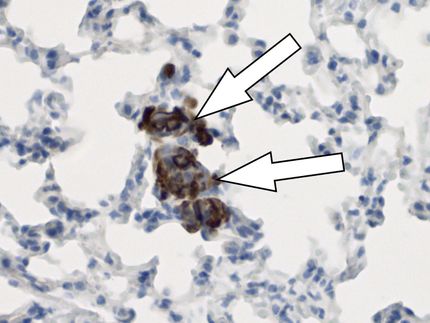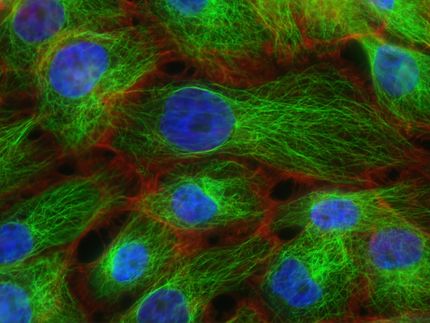Discovery of a protein linked to metastasis in breast cancer
Jean-François Côté, a researcher at the Montreal Clinical Research Institute (IRCM) and professor at Université de Montréal's Faculty of Medicine, studies metastasis, the leading cause of cancer-related death. Recently, his team uncovered a protein that, once deactivated, could prevent the development of metastases in an aggressive type of cancer, HER2-positive breast cancer.
One in eight women will be diagnosed with breast cancer in her lifetime and one in 30 is expected to die from it. The findings could improve this prognosis.
'Cunning' cells
A cancerous tumour develops when cells proliferate at an abnormally high rate and agglomerate in healthy tissue. Some of these cells are even more cunning. "Sometimes, cancer cells manage to leave the tumour to spread in the body, which complicates the evolution of the disease," said Côté, director of the IRCM's Cytoskeletal Organization and Cell Migration Research Unit.
These cells move more easily than most of their peers. They detach from the tumour, enter the bloodstream and reach other organs, for example the lungs, bones or the brain. Called 'metastatic cells,' they are more difficult to destroy as they spread to other parts of the body and are more resistant to current treatments; 90 per cent of breast-cancer deaths are caused by metastases. Hence, one priority in oncology is to prevent tumour cells from spreading because it has the potential of saving many lives.
A promising target
Côté and his collaborators have taken a step towards actually blocking metastases. In their study, the IRCM team demonstrated that a protein, AXL, influences the occurrence of metastasis in HER2-positive cancer, an aggressive type that accounts for 20 per cent of breast cancers. In HER2-positive breast cancers, cells with high levels of AXL are more likely to detach from tumours to form metastases.
The research was done on mice and with samples of tumour cells taken from cancer patients in Montreal. Statistical indicators about patients are also encouraging. In women with HER2-positive cancer, it was found that the less AXL is present, the better the survival rate. Previously, researchers had linked the AXL protein to another type of cancer, triple negative breast cancer, but no one had examined its presence in HER2-positive cancer before Côté and his team.
"Based on this discovery, a treatment targeting AXL could reduce the risk of metastasis," said Côté.
It has already been shown that the action of AXL can be hindered. The IRCM researchers administered an AXL-inhibiting drug therapy to mice with HER2-positive tumours and found that metastases were less prone to develop. The drug is currently being tested in clinical trials for various therapeutic uses. If subsequent studies are as successful, this treatment could also be used to treat breast cancer patients. It would act as a complement to therapies targeting the HER2-positive tumour.
Further work is already underway in the IRCM laboratory.
"At the moment, we are checking whether the tumour's environment, such as blood vessels and the immune system, is affected when AXL is inhibited," said Côté. By getting a better picture of the phenomenon, it will be one more step towards treating the disease.
Original publication
Marie-Anne Goyette, Stéphanie Duhamel, Léo Aubert, Ariane Pelletier, Paul Savage, Marie-Pier Thibault, Radia Marie Johnson, Peter Carmeliet, Mark Basik, Louis Gaboury, William J. Muller, Morag Park, Philippe P. Roux, Jean-Philippe Gratton, Jean-François Côté; "The Receptor Tyrosine Kinase AXL Is Required at Multiple Steps of the Metastatic Cascade during HER2-Positive Breast Cancer Progression"; Cell Reports; 2018
Most read news
Original publication
Marie-Anne Goyette, Stéphanie Duhamel, Léo Aubert, Ariane Pelletier, Paul Savage, Marie-Pier Thibault, Radia Marie Johnson, Peter Carmeliet, Mark Basik, Louis Gaboury, William J. Muller, Morag Park, Philippe P. Roux, Jean-Philippe Gratton, Jean-François Côté; "The Receptor Tyrosine Kinase AXL Is Required at Multiple Steps of the Metastatic Cascade during HER2-Positive Breast Cancer Progression"; Cell Reports; 2018
Topics
Organizations
Other news from the department science

Get the life science industry in your inbox
By submitting this form you agree that LUMITOS AG will send you the newsletter(s) selected above by email. Your data will not be passed on to third parties. Your data will be stored and processed in accordance with our data protection regulations. LUMITOS may contact you by email for the purpose of advertising or market and opinion surveys. You can revoke your consent at any time without giving reasons to LUMITOS AG, Ernst-Augustin-Str. 2, 12489 Berlin, Germany or by e-mail at revoke@lumitos.com with effect for the future. In addition, each email contains a link to unsubscribe from the corresponding newsletter.
Most read news
More news from our other portals
Last viewed contents

Mini-fuel cell generates electricity using the body's sugar - Glucose energy source for medicinal implants and sensors
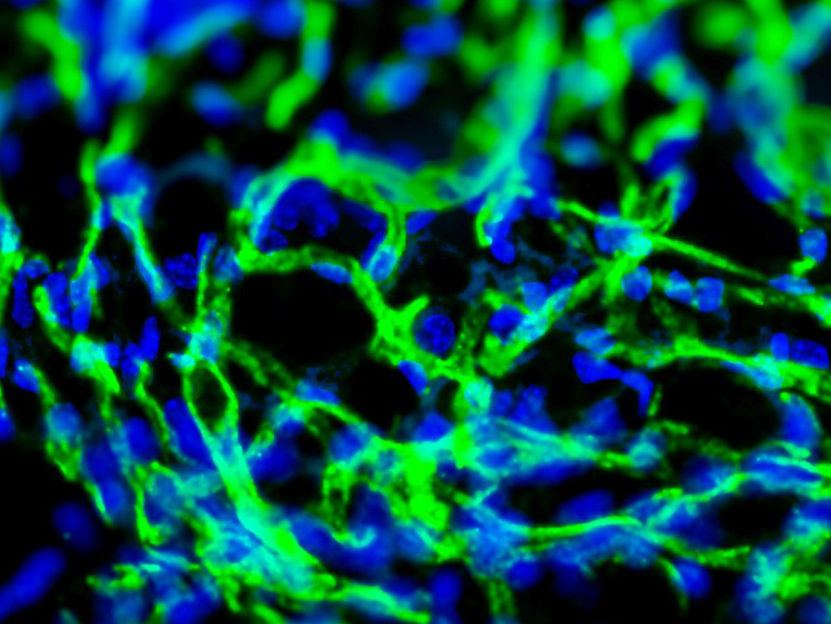
Creating blood vessels on demand - Researchers discover new cell population that can help in regenerative processes
Cytena Founds Subsidiary in Taiwan

Cancer screening from home? - Detection with independently taken samples can work
Protein helps prevent damaged DNA in yeast
Cornell Chronicle: Leaf gene changes increase corn yield - Technique allows researchers to identify key maize genes for increased yield
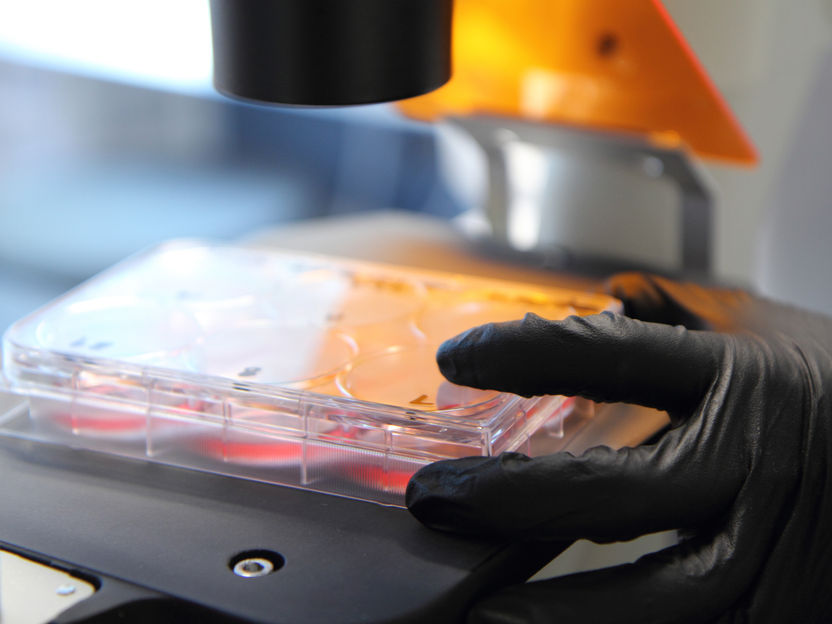
Bayer invests USD 50 Million in eGenesis Series B financing round - Investment to support development of human-compatible xeno organs to address the global organ shortage crisis
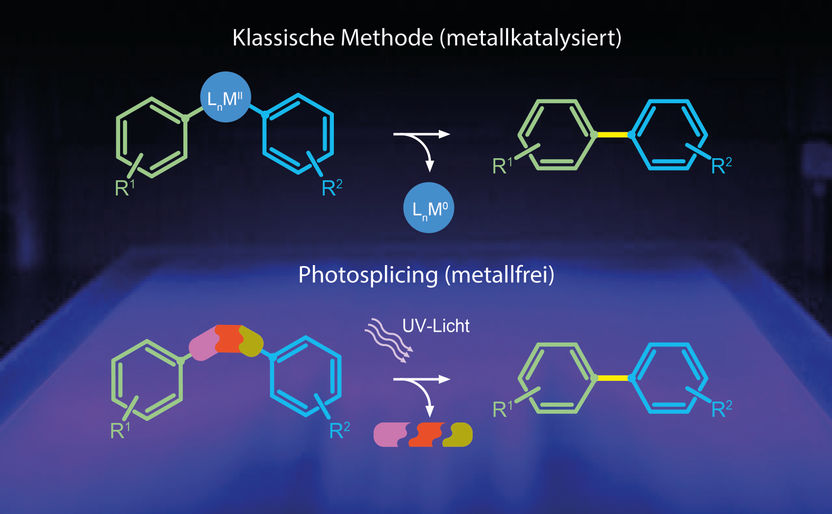
Synthesis of pharmaceuticals with light
DIREVO Announces Incorporation of Industrial Biotechnology Subsidiary

